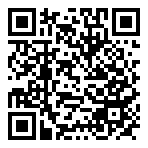Part I: Islands - Chapter 1
T
he whole thing started with a dog tag. Well, a monkey with a dog tag. Take your pick. I should have known it would be trouble. Should have sensed it. But I wasn’t as perceptive then. I hadn’t evolved. Yet.Wait.
I’m getting ahead of myself.
It was a typical Saturday morning at home, though my home is anything but typical. It’s unique—bizarre even. Which means I fit right in.
There are lots of interesting things about where I live, if you like the outdoors as much as I do. Not a nature lover? You might find my hood a bit... out of touch.
Because I live on a deserted island. Well, a pretty empty one, anyway.
Morris Island. My home away from normal homes. The end of the line. Nowheresville. The back-ass of Charleston. It’s not so bad, if you aren’t prone to loneliness. Which I am, but whatever. I’ve come to appreciate the legroom.
Morris isn’t imposing, as islands go, only four square miles. The northern half is an unremarkable strip of rolling, sandy hillocks. Then, in the middle, sand hills rise thirty-to-forty feet, marching south as the island widens. The western reach consists of dense marshland bordered by shallow tidal bays. To the east, the boundless Atlantic Ocean.
Dunes, swamps, beaches. And quiet. Plenty of quiet.
Only two modern structures exist on our teeny little landmass. One is the complex in which I live; the other is a road. The road. Our only connector to the outside world. It’s a one-lane, unmarked, narrow strip of pavement that winds south through dunes and marshes before leaving Morris and crossing Lighthouse Creek to Rat Island. Eventually the blacktop meets the highway at Folly Beach, then passes Goat Island on the way into the city.
Rat. Goat. Folly. You’ll have to ask the Charleston Historical Society who picked such delightful names. There are dozens more.
It was all new to me. The year before, I’d never been south of Pennsylvania. Then I crashed into my dad’s life.
About my “roommate”...
Christopher “Kit” Howard is my father. Kit and I have known that fact for exactly six months. That’s when I moved to South Carolina to live with him.
I had no choice, after what happened to Mom.
After the accident.
I’m not sure why, but Mom never told Kit about me. He had no idea he was a father. Had been one, in fact, for the last fourteen years.
Kit’s still not over the shock. I see it on his face every now and then. He’ll wake from a nap, or come up for air after a long stretch of work, and literally jump when he notices me. I see it register:!!!That’s my daughter. I have a daughter who is fourteen and lives with me. I’m her father.
Same shock for me, Pops. I’m working through it, too.
How do I describe my newfound dad? Kit is thirty-one, a marine biologist and research professor at the institute on Loggerhead. A workaholic.
He’s also a clueless parent.
Maybe it’s all too new—you know, the astonishment of learning you have a half-grown kid. Or maybe Kit remembers his own wild youth. In any case, he has no idea what to do with me. One day he chats me up like one of his buddies, and the next he treats me like a child.
To be honest, I own my share of the blame for things being sticky. I’m no saint. And I’m just as lost about having a father.
So here we are. Together. Smack dab in the middle of nowhere.
That day, I was classifying seashells by species. Corny? Maybe. But I’m a science nut. I live for figuring things out, finding answers. Mom always joked that it was hard raising a kid who was smarter than most college professors.
My take? I just do what I do.
Piles of shells littered the kitchen table. Sundials. Shark’s Eyes. Turkey Wings. Recently cleaned and buffed, they gleamed in the early morning sunlight.
I removed a new specimen from the bucket at my feet, making sure not to dribble bleach-water onto my clothes. It was a Scotch Bonnet, easily recognizable: white, egg-shaped, with red and brown spots circling its grooved outer surface. Pleased with the rare find, I set it aside to dry.
Reach. Pull.
My next draw was a mystery. Ark? Cockle? Both clams are abundant on the South Carolina coast.
Despite having soaked in bleach for almost two hours, the shell’s exterior was covered with caked-on debris. Barnacles and encrusted silt obscured all detail.
Excellent. I’d been looking for an excuse to use my power tools. They were a gift from my great-aunt Tempe.
You may have heard of her.
I was shocked when I found out. I’m related to Dr. Temperance Brennan, the world famous forensic anthropologist. She’s kind of my idol. When Kit first told me, I didn’t believe him, but his story checked out. Tempe’s sister, Harry, is my grandmother.
So there’s a celebrity in my family. A renowned scientist. Who knew?
Okay, at that point I’d only met Aunt Tempe once. But that wasn’t her fault. After all, like Kit, she’d only known of my existence for six months.
Aunt Tempe’s job is pretty intense. She identifies corpses. Seriously. A dead body might be burned, or decomposed, or mummified. It could be maggot city, or just a skeleton. Doesn’t matter. Aunt Tempe determines who the person is. Was. Then she and the cops try to figure out what happened to them.
Not bad, if you’ve got a steady stomach. I think I do.
Learning about my aunt helped me understand myself. Why I have to answer every question, solve every riddle. Why I’d rather read about fossilized raptors or global warming than go shopping for handbags.
I can’t help it. It’s in my DNA.
Aunt Tempe’s specialty is teasing facts from bones. What better way to use her gift than to clean dead mollusk shells?
That’s all shells are, anyway. Bones.
Digging a Dremel cordless rotary tool from my kit, I attached the bristle brush head and gently abraded the encrustations on the shell’s surface. After a few moments I switched to a sanding drumhead to remove more dirt.
Once the larger barnacles were gone, I grabbed my Neytech micro sandblaster, hooked its line to a small air compressor, and delicately bathed the seashell with aluminum oxide sand. Next, I used a dental pick to scrape off the final pesky particles. After washing away the remaining grit with a Water Pik, I went back to the rotary tool, this time with the polishing head. Done.
The shell glistened on the table before me. A spotted tan oval with a purplish interior. Four inches long. Prominent radial ribs running from the hinge to the edge.
I double-checked my guide to the South Carolina coast, confirming my guess. A Giant Heart Cockle. Dinocardium robustum.
Mystery solved, I placed the shell in its proper pile and dipped back into the bucket. Empty.
Time for something else.
I decided to fix a snack. Slim pickings, since Kit hadn’t been to the Piggly Wiggly in over a week. I suppressed a pang of irritation. The supermarket was located thirty minutes away on James Island; it’s not like he passed it every day.
Island refugee living. It’s a blast.
I settled for carrot sticks. Old ones. Addicted, I popped a Diet Coke. I know what you’re thinking. But I do try to eat healthy. Just leave me my caffeine, thank you. The heart wants what it wants.
I checked my phone. They were late. No text, either.
I considered my options. Zilch on TV. No surprise. Nothing called out from my unread book pile. The Internet was a snooze. Zero news on Facebook.
No homework that weekend. It was late May, and most of the teachers seemed as anxious as the kids to end the year gracefully.
I was stuck. Only fourteen, I couldn’t exactly hop in the car and take off. Plus, where would I go? To hang with my pals in town? Please. Everyone who likes me is an island refugee, too.
That left local options. Limited, to say the least.
Where were they, anyway?
Have I mentioned that my block is the most remote strip of housing in Charleston? On Earth? No one else lives anywhere near us. Most maps don’t even acknowledge that Morris Island is inhabited. Our whole neighborhood consists of ten townhomes built inside a single 430-foot reinforced concrete structure. Forty souls total. That’s it. Nothing else.
From our place it’s a twenty-minute drive until you glimpse the first road sign. At that point you’re still far from civilization, but on the right track. My friends and I usually skip the road and travel by boat.
Impressed? You should be. After all, how many people do you know who live in a converted military barracks? And I’m not talking this century. This building is super old.
During the Civil War, Morris Island guarded the southern approach to Charleston Harbor. The Confederate Army built a stronghold called Fort Wagner to block access to the island’s northern tip. Good call. The rebels had big honking guns up there. Wagner straddled the only path the Yanks could use to get to them.
Fort Wagner, Fort Moultrie on Sullivan’s Island, and Fort Sumter, a manmade hunk of concrete in the middle of the harbor, formed the core of Charleston’s defense against attack by sea. In 1863, the Union army tried to storm Wagner. The 54th Massachusetts Infantry, one of America’s first regiments of black soldiers, led the attack. It was brutal. And, unfortunately, a total bust. Even their commander was killed.
I watched a movie about it once. I think Denzel won an Oscar. He earned it, made me cry. And I don’t often do that. Maybe I was supposed to root for the Charleston soldiers, but I’m a Massachusetts girl. Besides, I’m not siding with slave owners, no way. Sorry. Go Union.
Fort Wagner was abandoned after the war, but the basic structure survived. Now Morris Island is a nature preserve held in trust by Charleston University. That’s my father’s employer. Ditto for everyone else living out here. When the university converted the old Fort Wagner barracks, it offered free housing to faculty working on Loggerhead Island, its offshore research facility. Loggerhead is even smaller and more remote than Morris.
My dad jumped at the offer. Ever try to live on a professor’s salary?
I continued to wait impatiently. I’d planned to go down to Folly Beach, but my ride was AWOL.
It felt like a no-show, so I decided to go for a run, one of the things for which Morris provides a great venue. I climbed to my room to change.
Every home in our little world is identical. Four stories tall, each goes up more than out. Any variation comes from personal taste in decorating and allocation of space.
In our case, the bottom floor is an office and single car garage. On the second floor, you’ve got the kitchen, dining, and sitting areas. Floor three has two bedrooms—Kit’s in back, mine in front overlooking the commons.
Our top floor has a large room we use as Kit’s media center. I call it the Man Cave. It opens onto an outdoor roof deck with an incredible ocean view. All in all, not too shabby, though four flights of stairs can be a killer.
While lacing my Adidas, I glanced out my bedroom window. A familiar figure was bounding up the jetty from the docks. Hiram, at top speed. Which, to be blunt, isn’t impressive.
Hi was puffing hard, chugging up the incline toward the main building. His cheeks were flushed and his hair was pasted to his face.
Hi does not run for pleasure.
I grabbed my keys and bolted.
Something was up.



 ePub
ePub A4
A4